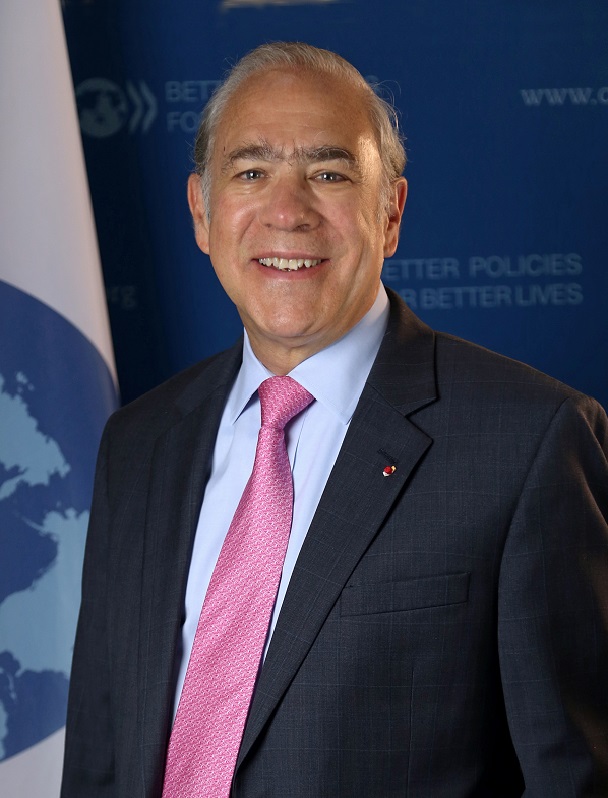Three reasons why Finland can stay on top

OECD
In 1969, when Finland became an OECD member, you were delicately balancing between the West and the East. Finland’s road to prosperity was neither obvious nor predetermined. Per capita income was almost 30% lower than in Sweden.
In the 1970s and 1980s, Finland rapidly caught up with top performers, such as Germany and Sweden in terms of income per capita, with the gap shrinking to less than 10%. But in the early 1990s, the country went through a deep recession: GDP contracted by 10% and the Finnish economy was damaged by a severe banking crisis.
That was a painful period, with the unemployment rate reaching nearly 18% in 1994. But Finland showed its resilience–its sisu, as the Finns say. The economy rebounded and became increasingly knowledge-based, as illustrated by the global success of Nokia. Finland then joined the European Union in 1995, which supported economic reforms and boosted trade.
When the global financial crisis hit in 2008, Finland’s output per capita had caught up with Germany’s and Sweden’s. However, as in the 1990s, the crisis hit hard. It took 10 years for Finland’s GDP to get back to its pre-crisis level. Economic growth and employment have rebounded over the past three years and optimism has returned. Output expanded at an average annual rate of 2.5% and the employment rate now reaches 72.6%.
Today Finland is a global leader in a range of areas. The country is among the best performers in PISA (OECD Programme for International Student Assessment) and an innovation leader according to the European Innovation Scoreboard.
Finland enjoys one of the lowest levels of income inequality in the OECD, and gender inequality is among the lowest in the world. Environmental policies are ambitious, renewables now make up nearly a third of primary energy supply, far above the 10% OECD average. Finland is also one of the few countries that are integrating the Sustainable Development Goals (SDGs) into its budgeting cycle.
Compared to other OECD countries, the Finns are among the most positive towards globalisation, and have some of the highest levels of subjective wellbeing, personal security and environmental quality in the OECD. They are also quick to adapt to the shifts of global economic activity, increasing their presence in Asian markets in recent years (15% of exports in 2018).
The OECD is proud to have contributed to these positive events. Since 1969, the OECD has supported Finland through delivering data driven, evidence-based and peer-reviewed analysis and recommendations. We have worked together to support Finland on innovation policy, quality standards in early childhood education, labour market integration of migrants, and on Finland’s integration in global value chains. Next in the pipeline are collaborations to assess the impact of regulations on international investment in Finland and to support the Finnish EU presidency on the economy of well-being. And we are eager to continue to support your success story and work together on issues related to, for example, regional development, small and medium-sized enterprises (SMEs), or inclusive policies for the digital transformation.
Looking to the next 50 years, your achievements across the economy must not be taken for granted, particularly given the uncertainty affecting the global scene.
While globalisation lifted millions out of poverty and allowed vibrant economies like Finland to thrive, it also made many people feel left behind, triggering a resurgence of populism, nationalism and protectionism, which today threaten growth prospects and disproportionately harm low-income households.
Opposition to multilateralism has also risen. Yet in a world of increasingly integrated economies that face urgent global challenges, like climate change and digital security, multilateral co-operation is needed more than ever. We count on Finland to champion international co-operation and multilateralism as it takes over the rotating presidency of the European Council in July.
There are three reasons why I am confident that Finland will have a growing global and multilateral relevance in the coming 50 years.
First, because you are visionary! Finland is a global leader when it comes to strategic foresight in policy-making. This includes deliberations by Finland’s Parliamentary Committee for the Future, regular futures reviews conducted across government ministries, and significant foresight investments by SITRA, an innovation fund, and others. As a result, Finland is often ahead of the curve on emerging policy issues.
Second, because you are innovative! Finland is willing to try out new things. For example, the recent “Elements of AI” initiative joins a list of social experiments that test ideas to make society run better. The initial aim of the initiative was to teach 1% of the Finnish population about machine learning, but its reach is already beyond the initial goals, with new sign-ups in thousands every week in Finland and around the world.
Finally, because you are harmonious! I am convinced that the spirit of inclusiveness, sustainability and community is part of the Finnish identity. Safeguarding these core qualities will ensure that Finland is positioned to stay on top and consolidate its role as a global leader.
Please count on the OECD to support you, as you design, develop and deliver better policies for better lives over the next 50 years.
